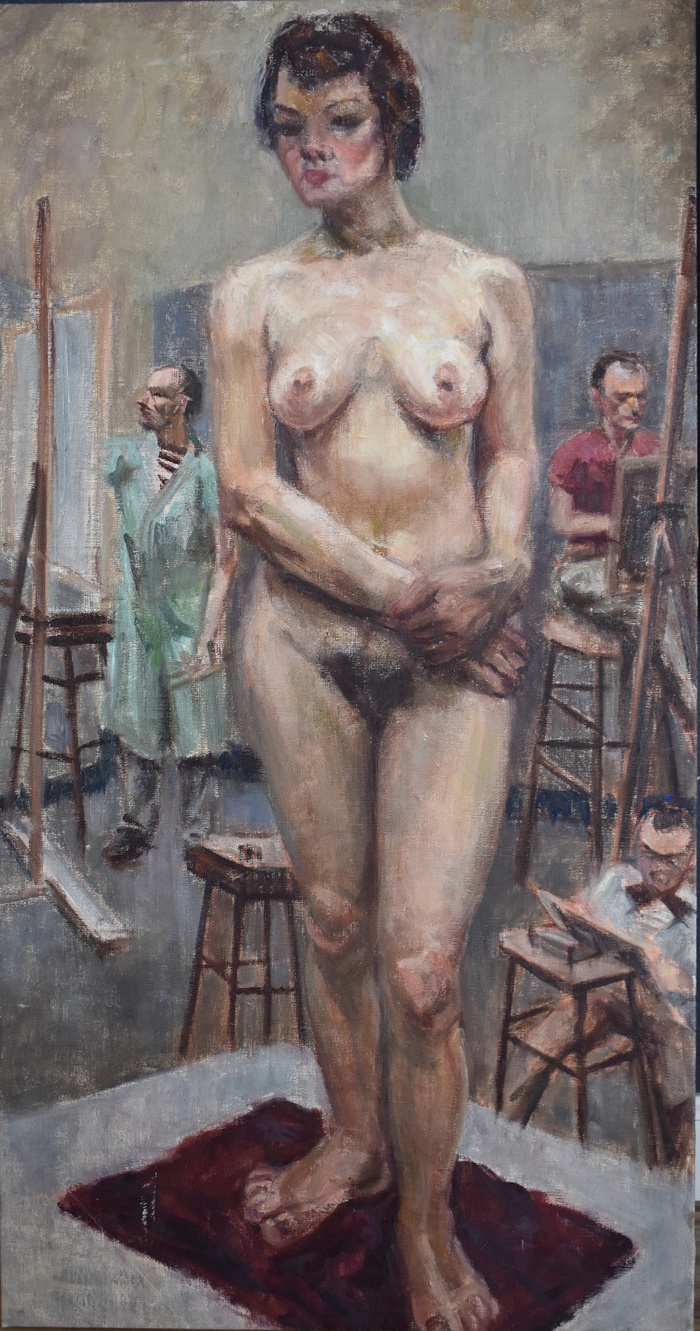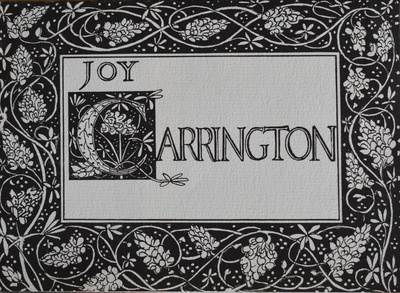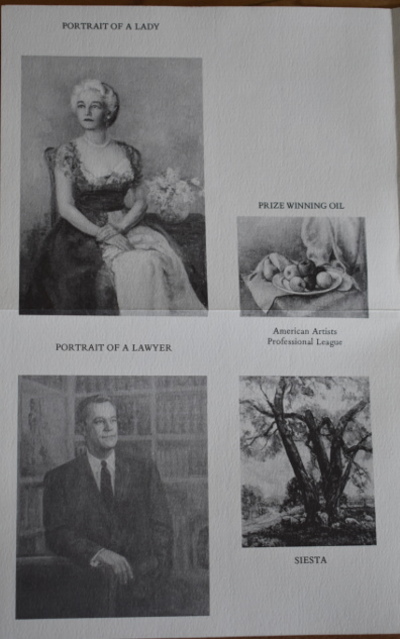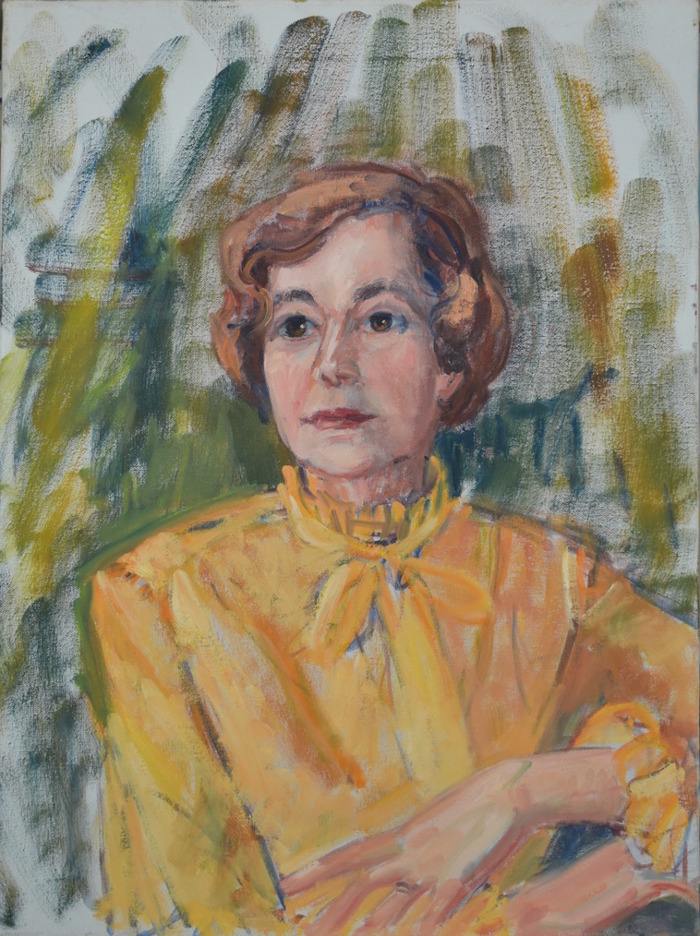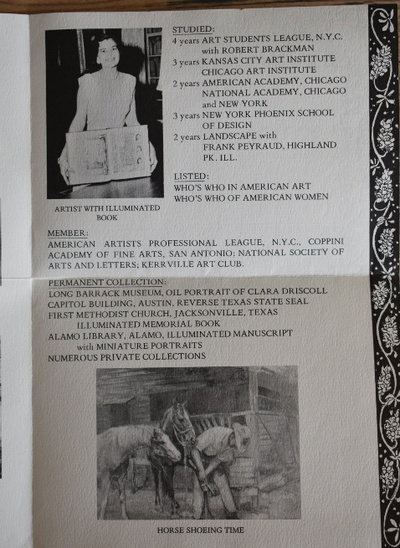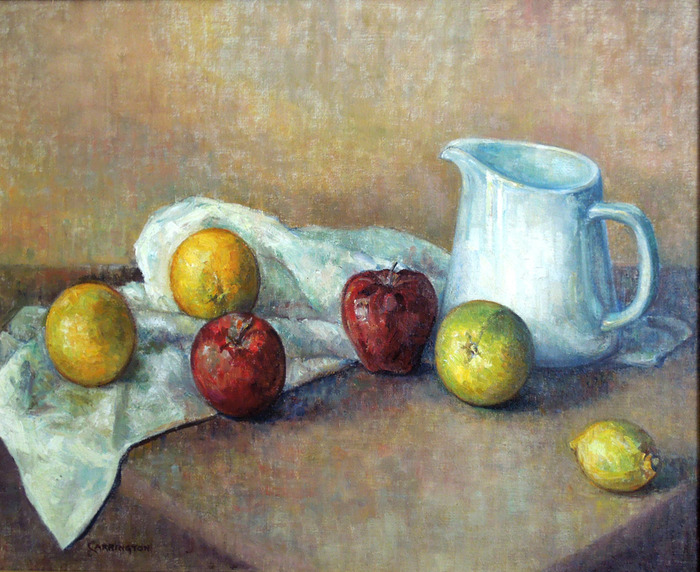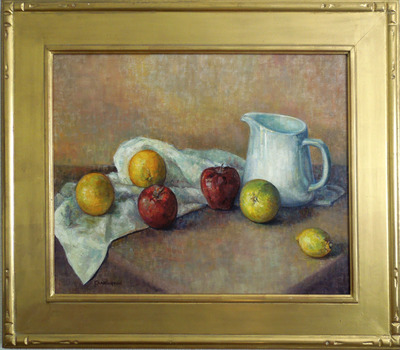Prior to her marriage to William Larrin Carrington in 1934, she painted as Joy Harrell. She received extensive training: studying for three years at the Kansas City Art Institute, four years at the Arts Student League of New York and three years at the Arts Institute of Chicago. Furthermore, Carrington cultivated her skill in portrait and figure work as a student of artist Robert Brackman. Her awareness of color and design was then honed by study with Constantine Pougialis.
Carrington exhibited throughout the United States, most often in San Antonio, Texas. She participated in the San Antonio Local Artists Annual Exhibition, 1935-1937 and in 1959 as well as exhibitions at Copini Academy of Fine Arts, San Antonio winning honorable mention in 1956 and 1958. The artist received an award in 1959 with The Worker. She also exhibited in the Texas Fine Arts Association Exhibition in 1956. Carrington’s Negro Man won an award at San Antonio’s Witte Memorial Museum, and a one-woman exhibition at the same museum followed. Memorial Book of Donors her extensive hand-illuminated manuscript over five years in the making was exhibited by the Witte in 1962. In 1969 the American Artists Professional League in New York presented Carrington with the Grumbacher Award for her oil painting, "Fruit".
In the Boardroom of the Alamo is Carrington’s portrait of the “Savior of the Alamo,” Clara Driscoll, who prevented the sale of the Alamo convent to a hotel firm in 1903. Moreover, an illustrated manuscript by Carrington is in the Daughters of the Republic of Texas Library in San Antonio. On August 11, 1961, the Texas legislature adopted the Daughters of the Republic’s design for the reverse side of the Great Seal of Texas. Although the design, which incorporates the six flags of Texas, the Alamo, the Gonzales “Come and Take It” cannon and Vince’s Bridge, destroyed by Erastus (Deaf) Smith on orders from General Sam Houston at the battle of San Jacinto, was not produced by Carrington, she painted a watercolor of the seal. Her painting hangs in the office of the Texas Secretary of State.
The artist preferred the immediacy of painting from life. She stated that it creates a conviction not achieved from imagination alone. She drew upon skills gleaned from Brackman by visually simplifying her subject into broad masses while also striving for cohesion among the subject and its environment throughout the painting. Carrington also regularly reconstructed a painting to give it strength, personality and power. Carrington resided at the family ranch near Median, Texas for the last forty years of her life.
Honors
1986 Silver Medal, Frontier Times, Bandera, Texas
1982 Best of Show and First Place, Coppini Academy of Fine Arts, San Antonio, Texas
1969 Grumbacher Award Grant National Exhibition, American Artists Professional League, New York, New York for her oil painting, Fruit
1958 Kocurek Award, Coppini Academy of Fine Arts, San Antonio, Texas for The Worker
Group Exhibitions
1959 Coppini Academy of Fine Arts
1958 Coppini Academy of Fine Arts
1956 Coppini Academy of Fine Arts, Texas Fine Arts Association Exhibition
1935-1937 San Antonio Local Artists Annual Exhibition
American Artists Professional League, New York, NY
Grand National, Lever House Park Avenue, New York, NY
Annual National Invitational Art Western Show, Coliseum, San Antonio, TX
Meinhard Galleries, Houston, TX
Laguna Gloria Art Gallery, Austin, TX
One Man Exhibitions
1964 St. Mary’s University, San Antonio, TX
1963 Witte Memorial Museum, San Antonio, TX
1962 Junior League Art Center, Tyler, TX
Information submitted by Stephanie Reeves
This biography from the Archives of AskART:
Painter Joy H. Carrington was born in 1907 in Jacksonville, Texas, although she is associated with the city of San Antonio. She studied at the Kansas City Art Institute, Missouri; Art Students League, New York City; and Chicago Art Institute, Illinois for a total of ten years. After three years in Kansas City, she studied with Robert Brackman during her four years at the League and in Noank, Connecticut; and with Constantine Pougialis during three years in Chicago.
A commercial artist and teacher, as well as a painter, she was a member of the Coppini Academy of Fine Arts, in San Antonio; and the Texas Fine Arts Association. Carrington exhibited in the San Antonio Local Artists Annual Exhibition, 1935-37, 1959; Coppini Academy of Fine Arts, San Antonio, where she won an honorable mention in 1955; exhibited again in 1956; won an award in 1958; exhibiting again in 1959; and at the Texas Fine Arts Association Exhibition, 1956. She had a one-woman exhibition at the Witte Memorial Museum, San Antonio.
Joy Carrington's portrait of Clara Driscoll is in the Alamo Boardroom, San Antonio; an illuminated manuscript in the Daughters of the Republic of Texas Library, also in San Antonio. Information on the artist may be found in the Texas Artists Files, Witte Museum; Texas Fine Arts Association Records; and the
Bandera Bulletin, March 3, 1999.
Joy Carrington lived on the family ranch in Medina, Texas, for the last forty years of her life. She died there in 1999, the last direct descendant of the pioneer Brady Anderson family.
